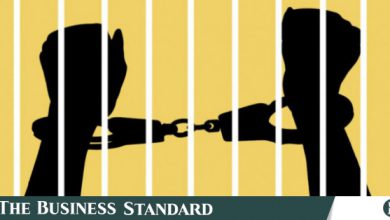BSEC allows Desco to issue 60.76 crore preference share


The Bangladesh Securities and Exchange Commission (BSEC) has allowed state-owned power distributor Dhaka Electric Supply Company (Desco) Limited to issue 60.76 crore preference shares at Tk10 each to the government against a share money deposit.
The commission approved this in its meeting on Sunday.
According to its financial statement till June 2023, Desco received Tk607.69 crore from the government as a share money deposit for its annual development plan. Against this fund, the company will now issue irredeemable non-cumulative preference shares in favour of the secretary of the Power Division under the Ministry of Power, Energy, and Mineral Resources.
On 2 March 2020, the Financial Reporting Council (FRC) directed that capital received as a share money deposit, or by any other name, should be included in the equity part of a company. This amount cannot be refunded and must be converted into share capital within six months from the date of receipt.
Such share money deposits shall also be considered in the calculation of earnings per share (EPS).
Desco decided to issue preference shares after more than three years of the FRC directive.
Preference shares are a type of company stock with dividends paid to shareholders before ordinary shareholders. In case of bankruptcy, preference shareholders have priority in receiving payment from company assets before common stockholders.
The irredeemable nature of these preference shares means they will not increase Desco’s paid-up or common share capital. Consequently, the company is not obligated to pay any previous year’s unpaid preference share dividends due to the “non-cumulative” nature of the shares.
The proposed conditions imply that if Desco makes more profits, the government will get high dividends against the preference shares and in cases of annual losses no dividends will be given.
As the new shares will not be taken into account for EPS calculation, there will be no direct impact on the company’s financials.
But because of getting priority in dividend payments, the government as a preference shareholder will first receive a portion of the company’s earnings as a dividend, which might ultimately decrease the net profit.




